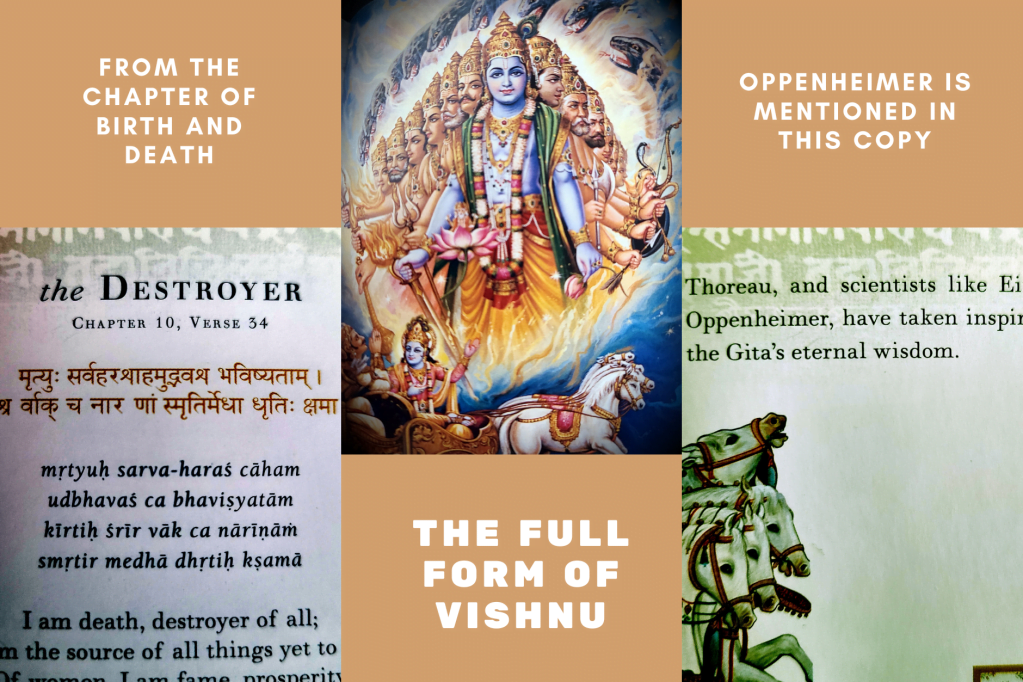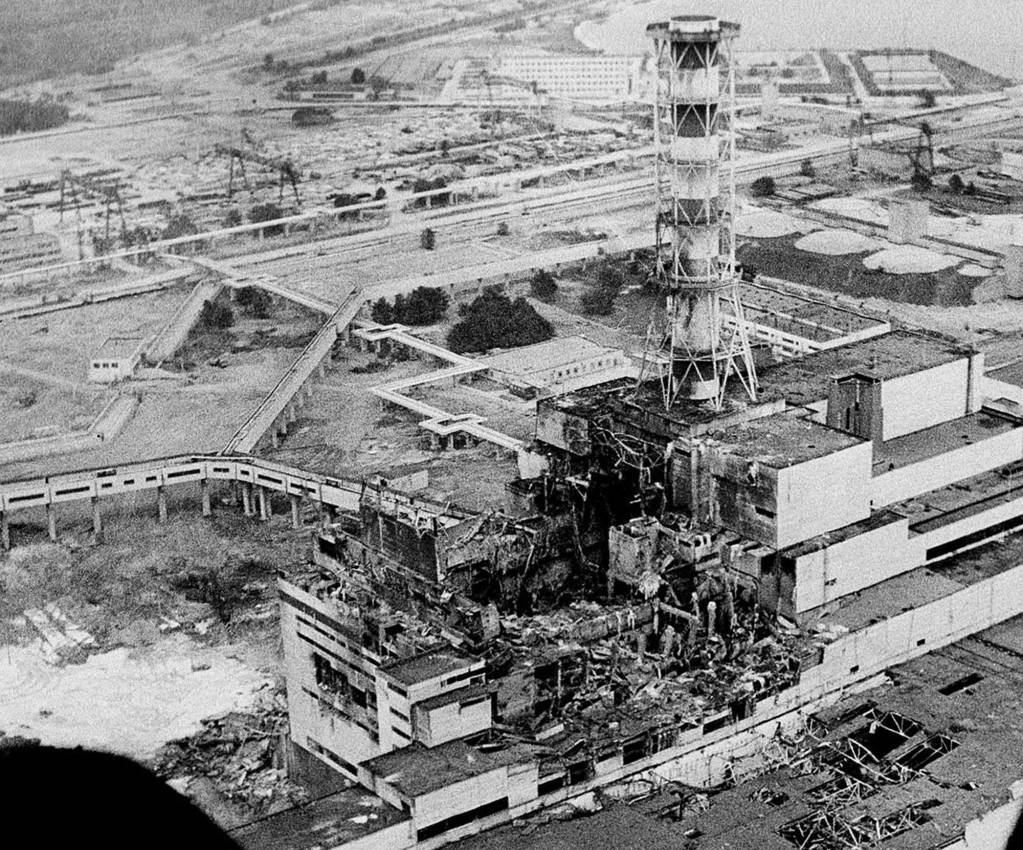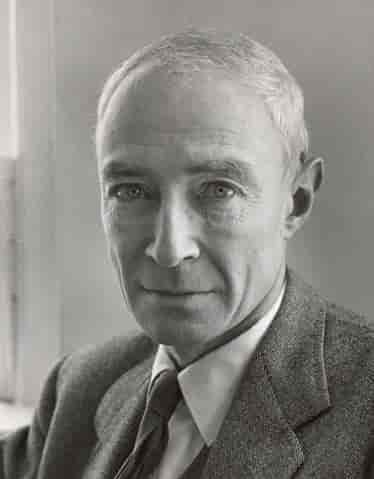“Now I am become Death, the destroyer of worlds,” was a line often mentioned in the 2023 epic biographical film Oppenheimer, ironically about the birth of the atomic bomb. And in a way, having the power of nuclear fission did pave the way for many more destructive wars to come, and thus scores more deaths. The film, written and directed by Christopher Nolan, was based on the 2005 biography American Prometheus by Kai Bird and Martin J. Sherwin.
It chronicles the career of American theoretical physicist J. Robert Oppenheimer, and much like Prometheus stealing fire from the Gods of Olympus, the scientist subsequently suffered an eternity of punishment for his actions. The story predominantly focuses on Oppenheimer’s early studies, his direction of the Manhattan Project during World War II, and his eventual fall from grace due to his 1954 security hearing. As a result, there are a large number of nonfiction books dedicated to the anti-nuclear cause both directly and indirectly because of the actions of Oppenheimer.
What did Oppenheimer actually do?
J. Robert Oppenheimer, known as the "father of the atomic bomb," was a pivotal figure in developing the first atomic weapons during WWII. He led the Manhattan Project, overseeing scientific and technical aspects. Oppenheimer's key roles include assembling and leading a team of experts, establishing the Los Alamos Laboratory, and contributing to theoretical aspects of nuclear physics and bomb design. He coordinated research efforts, played a central role in the Trinity Test – the first successful atomic bomb detonation, and advised leaders on atomic weapon consequences. Post-war, he advocated arms control and peaceful atomic energy use. Oppenheimer's legacy is complex due to moral concerns and political scrutiny.
Why did Oppenheimer say ‘I am become death’?
Like the film, the idiom regarding destruction, is encapsulated in a moment on the battlefield from the Hindu scripture the Bhagavad-Gita. However, the original meaning is far more complex than what the movie portrays, though it is still a profound turn of phrase.

In the philosophical works, Prince Arjuna is on the battlefield with the deity Krishna, the human avatar of Vishnu, the Supreme God. It is a snapshot where essentially time stands still and the two converse as the young prince is besieged with decisions including having to kill family members during war. He sees for the first time the true form of Vishnu, one of the ‘holy trinity’ and thought to be the Preserver of the triumvirate, with the others being Brahma (the Creator), and Shiva (the Destroyer). However, whenever the world is threatened, he returns as his human form to restore balance and cosmic order.
“Whenever righteousness wanes and unrighteousness increases I send myself forth.
Bhagavad Gita 4.7–8
For the protection of the good and for the destruction of evil,
and for the establishment of righteousness,
I come into being age after age.”
In this instance regarding speaking about death, Lord Krishna tells Arjuna “I am time, the mighty destroyer of worlds” and like everything has a beginning, it also has an end. Hence, the expression has been taken slightly out of context from the original meaning, because while Oppenheimer felt the guilt of being seen as the “father of the atom bomb,” his role may have just been a catalyst of something that was inevitable.
“I think the advent of the atomic bomb and the facts which will get around that they are not too hard to make—that they will be universal if people wish to make them universal.”
Robert Oppenheimer
However Oppenheimer was very aware of the fact that much of his need to create the weapon of mass destruction was based on his belief that it was only a matter of time that others would, and therefore he felt he would be restoring the status quo through a ‘necessary evil’.
What is nuclear energy and is it safe?
We do seem to be living in a time of catastrophic inescapability – with the climate fast-changing before our eyes, and energy consumption becoming euphemistically unruly. Consequently, many countries continue to turn to nuclear energy as a source of power, without taking heed of the consequences.

The production of radioactive waste remains hazardous for thousands of years and proper storage and disposal of this waste are crucial to prevent environmental contamination and human health risks. This also goes for nuclear accidents like that of Chernobyl and Fukushima. And more recently in Ukraine again, as the risks increase near the Zaporizhzhia Nuclear Power Station, due to the ongoing war in the country. Reactor meltdowns can release large amounts of radioactive materials into the environment, leading to immediate health impacts for nearby populations and long-term environmental contamination.
Read: International Mother Earth Day nonfiction books: 6 reads on climate crisis
And it goes without saying that the technology and materials used in nuclear energy can also be diverted for the production of nuclear weapons, leading to concerns about the spread of nuclear weapons capabilities to countries or groups that might pose a threat. We live in a world with mutually assured destruction – and somehow that is never a comfort.
While nuclear energy doesn’t produce greenhouse gas emissions during operation, the supply of uranium, the primary fuel for nuclear reactors, is finite. This raises concerns about long-term sustainability if nuclear energy were to become a major global energy source. Nuclear power also has an environmental impact in terms of water use and thermal pollution. The cooling processes of nuclear plants can affect aquatic ecosystems.

Anti-nuclear books in response to Oppenheimer
With that being said, here are some books about the dangers and prevention of nuclear war and disaster after watching the Oppenheimer movie. These books aren’t directly related to Oppenheimer, but are linked to the aftermath.
- The Bomb: Presidents, Generals, and the Secret History of Nuclear War by Fred Kaplan. This book provides a comprehensive history of nuclear weapons, from their development to their use in war. It also explores the challenges of preventing nuclear war and the dangers of nuclear proliferation.
- Command and Control: Nuclear Weapons, the Damascus Accident, and the Illusion of Safety by Eric Schlosser. This book tells the story of a near-miss nuclear disaster in 1980, when a B-52 bomber carrying nuclear weapons was forced to make an emergency landing in Greenland. The book also examines the risks of nuclear accidents and the importance of safety procedures.
- The Doomsday Machine: Confessions of a Nuclear War Planner by Daniel Ellsberg. This book is a memoir by Ellsberg, who leaked the Pentagon Papers to the New York Times in 1971. The book provides a behind-the-scenes look at the US nuclear war planning process and the dangers of nuclear deterrence.
- Nuclear Terrorism: The Ultimate Preventable Catastrophe by Graham T. Allison. Allison offers an ambitious but feasible blueprint for eliminating the possibility of nuclear terrorist attacks, if we are willing to face the issue squarely.
Read: Prosecraft AI takes down site after being accused of using authors’ works
- The Seventh Decade: The New Shape of Nuclear Danger by Jonathan Schell. This is a classic work on the dangers of nuclear weapons and nuclear power. Schell argues that nuclear weapons are inherently unstable and that nuclear power is too risky to be used as a source of energy.
- Twilight of the Bombs: Recent Challenges, New Dangers, and the Prospects for a World Without Nuclear Weapons by Richard Rhodes. This provides a comprehensive overview of the history of nuclear power, from its development to its current use. Rhodes also discusses the dangers of nuclear power, including the risk of accidents, the proliferation of nuclear weapons, and the disposal of nuclear waste.
- Atomic Accidents: A History of Nuclear Meltdowns and Disasters by James Mahaffey. This chronicles the history of nuclear accidents, from the early days of nuclear power to the present day. Mahaffey discusses the causes of accidents, the consequences of accidents, and the lessons that can be learned from accidents.
Did Oppenheimer regret making the atom bomb?
While Oppenheimer may not have openly apologised for helping build the bomb out of a sense of duty and a feeling that it was unavoidable, in his farewell speech, he highlighted the need to reevaluate the relationship between science and common sense. A reality that we have seen more and more in the 20th and 21st century with the advancement of technology, in particular AI.
“I console myself with the normal excuse: If I hadn’t done it, somebody else would have.”
Dr Geoffrey Hinton
But we’re also glaringly aware that some academics work in a silo as everything is created out of an “organic necessity” as Oppenheimer says. As a result, there are a few notable computer scientists already regretting their decisions, as seen with at least two of the three fathers of artificial intelligence Dr Yoshua Bengio and Dr Geoffrey Hinton, who won the 2018 Turing Award for OpenAI. So for everyone’s sake, let’s be careful what we wish for, and find a way to restore our planetary order.
This article contains affiliate links, where we may earn a small commission at no extra cost to you – we have not been paid to highlight books.
[…] India and Pakistan are worryingly both nuclear powers, fighting over much needed clean water as well as disputed territory in areas such as Jammu & Kashmir. Just in the past few years, a standoff intensified when a major exchange of gunfire and shelling erupted between Indian and Pakistani troops in November 2020 along the Line of Control which left at least 22 dead, including 11 civilians. And J&K is often treated like a buffer zone instead of a country in its own right, leaving citizens in extremely challenging situations. No one comes out a winner in this. […]
[…] Pulitzer Prize winners Branch, Schiff and Bird also happen to have co-written the J. Robert Oppenheimer biography “American Prometheus” that was adapted into the hit film “Oppenheimer” this year. […]
[…] on the red carpet, readers were looking at all of the successful book-to-film adaptations. From “Oppenheimer” to “Flowers of the Killer Moon,” one film that took the concept quite literally is […]